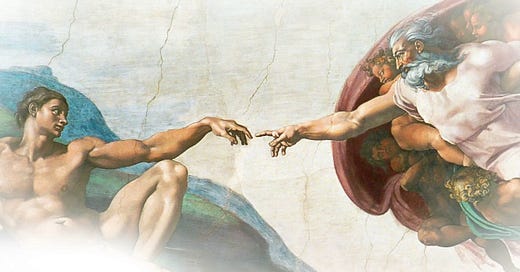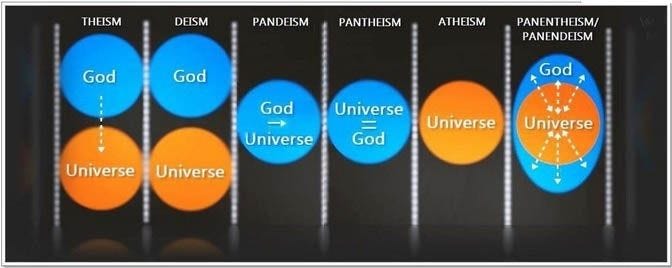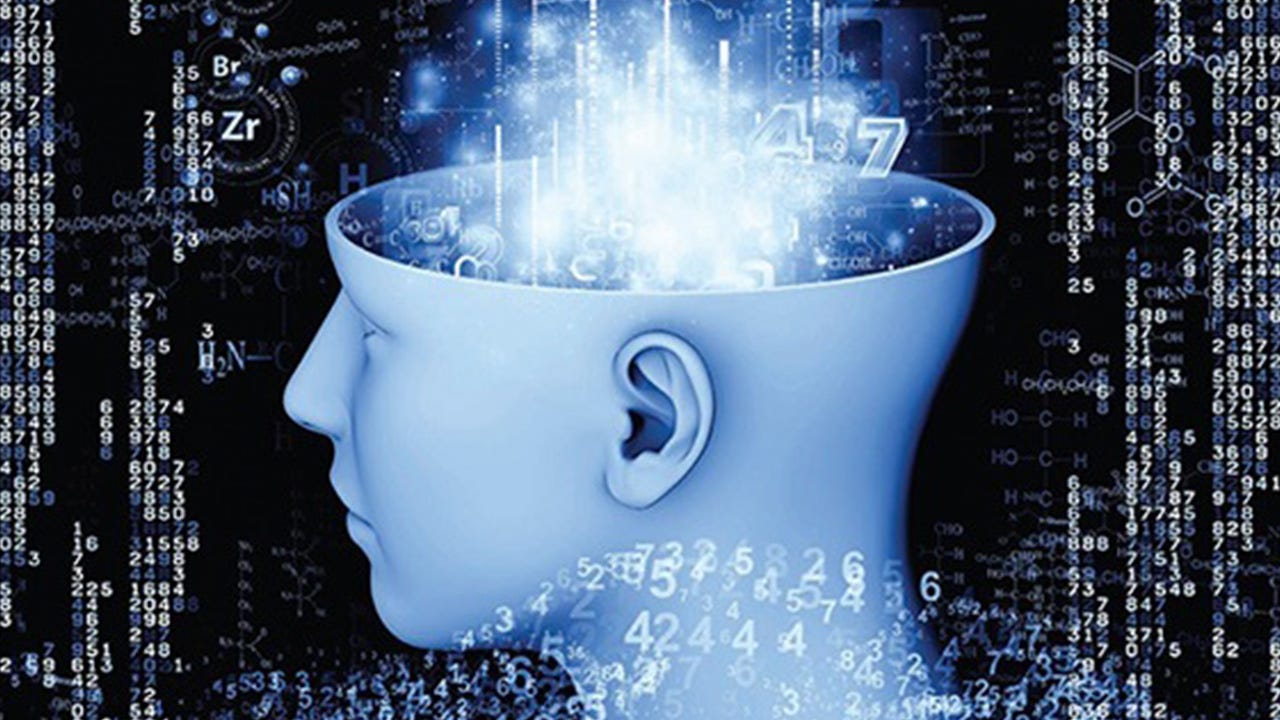Some people are confused and think I'm Christian because I stand up for Christians and use religious language when I talk about God. This should be of no surprise since I was born in Italy, my entire family is Roman Catholic, and I was raised in a Roman-Catholic household. I was Catholic for 23 years of my life, and I did baptize my children to honor my parents, but I no longer subscribe to any religion.
Although I no longer subscribe to any religion, my ethics can be considered "Christian," in the sense I agree with 99% of their positions on morality, so you could say I’m culturally Christian. Ironically, I'm find that I'm more “Christian” than most Christians are in the way I live my life; all the “sins” I committed in my life—drug use, gambling, lots of fornicating, egotism, etc.—have been eliminated. In fact, I think most Christians today are not only the biggest sinners, but also the biggest hypocrites and cowards walking the earth, supporting the Christ-killing Israelis, while also allowing secular and fanatic jewish “intellectuals” infiltrate and undermine their institutions and nations, to the point they fear the jews’ wrath more than God’s.
These so-called Christians allow the Children of Satan to blaspheme God and attack Natural Order, but dare not criticize a single one of these creatures for doing so, in fear of being labeled an anti-Semite and/or lose their job. Compare these “Christians” of today to the Christians old, who chose to get eaten by lions, rather than renounce their faith. For this reason, I do not respect these modern-day “Christians” at all; I only respect Christians who stand up against the jew.
My View on God
I mentioned and even capitalized the word “God” above, but I don’t not view God as the Abrahamic faiths do. My view on God is similar to that of the Stoics and Taoists—a wholistic view—that It is not separate from Its apparent “creation,” which lands my somewhere in between a kind of pantheism or panendeism—leaning more toward the latter.
In my book, Thoughts and Reflections on Life, I argue against the apparent “personhood” of God, giving reasons to why personhood contradicts or makes his traditionally given attributes impossible in Section 8-8:
God cannot be a person or entity with traditionally accepted attributes for the following reasons:
• For God to be infinite, he could not have limits of any kind, nor a single defining characteristic of personhood.
• For God to be omnipresent, he could not have a locus, nor could he exist apart from his creation; he must literally be everywhere and be the composition of everything.
• For God to be omniscient, he would have to not just know all knowledge, but also all experience—the subjective experiences of all of his living creations—which could not be possible unless he was all of his creations.
• For God to be omnipotent, he must be able to exercise all possibilities which exist in the Whole; thus, he must actually be the Whole itself in order to do so.
The best logical conclusion is God cannot be a person, but instead is all persons, all of creation, and exists at all times, being every possible form, and essentially is the unlimited, infinite reality which is a reflection of itself, that is not one thing in particular, but is all things simultaneously, and knows all experiences by being all things that can have experiences, and is the eternal substrate that is, has been, and always will be.
The closest position I have heard that is similar to mine is that of Bernardo Kastrup’s Analytic Idealism:
And Italian physicist, Federico Faggin’s belief that God is “One becoming the many so it could know itself.”
Why Am I Sharing This?
I share this not to start a debate, but to clarify my position on God to all of you. I don't care what you believe, nor am I trying to convince to stop believing what you do. Since none of us can prove anything we believe, what is the point? Thus, I have no reason to argue with those who believe he/it is a personal being.
So long as your beliefs do not harm others, I don't care what they are. Moreover, my position on God does not exclude the possibility of revelation or prophets; in fact, since I view that God is literally everything, nothing would stop It from manifesting in such forms. However, I do not believe God has revealed Itself in this manner, but rather, through the Laws of Nature, mathematics, and the Laws of Logic. With that being said, I naturally reject the religions and revelations written by fallible men.
This does not mean such religions do not contain any wisdom or truths within them; because I believe we all have a piece of God within us, we should expect human beings to be able to make truth statements or share stories that contain moral wisdom, since they would be also be expressions of God—but not fully, as it in impossible to contain Its infinite knowledge and wisdom in any texts, as you'd need the entire Universe to express it—which explains why so many religions clash, as they each only have parts of the truth. It is why I consider “revelation” or “The Word of God” to be expressed in mathematics, physics, logic, which all describe reality itself and are universal, with no misinterpretations or clashes.
In my view, God “reveals” Itself as the unfolding of the objective reality before us, and we use tools (math, logic, reason) to describe and understand what “He is saying.” That is why I am drawn to Stoicism and Taoism, both of which teach you to submit to “the Whole” (Stoicism) or “the Way” (Taoism)—to you religious folks, this would be “God’s Will.” If you go against it, you suffer more than necessary and are drained of life; go with it, you suffer less, but then get empowered by it.
The only difference between you and I, is that you think God is not a force, but a personal being that is separate from Its creation. Perhaps he is both a force and a person, or something none of us an comprehend; but to think he is only a person, I consider no different than how the Greeks anthropomorphized natural events to explain the world around them, which I am not convinced by.
Regardless, I have no interest in debating or warring with others and their beliefs, so long as their ethics align with the majority of mine, and their religion focuses on the common enemy, whose ethics are the complete opposite and is a threat to all humanity.







My background is similar to yours. I was also raised Catholic and was a zealot. I converted to Mormonism and was very active for 25 years until I realized its premise is bs. I was always seeking more and studied Islam. I also studied world religions.
The I came across a quote from Seneca the Younger. He wrote, "Religion is believed by the common, not believed by the wise and considered useful by rulers.". It was like the missing piece of a puzzle I was working on my whole life. That quote helped me transcend religion. Now my views are like yours.
I agree with you completely. Impeccable thinking beauifully expressed.
Please only correct this:
"The only difference between you and I," to read "The only difference between you and me."
You may think tit is nothing but to me it is a small fly that maculates the bowl of nectar. On the othner hand you may consider it a compliiment in the sense that it is my only objection...
I have long tried to explain to friends that although I do not believe in the literal truth of the NT I consider it the noblest religion of all, espousing the highest ethics code of all major religions. I also consider it a glorious utopia that gives believers tasks of self-improvement that are impossible to achieve but encourages them to keep tending toward them asymptotically.